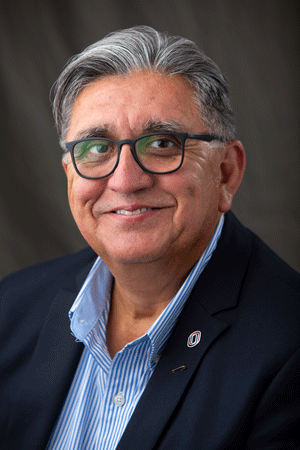Cuba and the Bankruptcy of our “Change through Impoverishment” Policy
November 2021

Dr. Jonathan Benjamin-Alvarado
OLLAS Faculty & UNO’s Assistant Vice Chancellor for Student Success
(Published in the Omaha World-Herald, August 14, 2021)
Dr. Benjamin-Alvarado, a long-time OLLAS contributor and a Cuba policy analyst, is UNO’s Assistant Vice Chancellor for Student Success and a Professor of Political Science.
The “only foreseeable means of alienating internal support, is through disenchantment and disaffection based on economic dissatisfaction and hardship…every possible means should be undertaken promptly to weaken the economic life of Cuba, . . . [to deny] money and supplies to Cuba, to decrease monetary and real wages, to bring about hunger, desperation and [the] overthrow of government.” U.S. Deputy Assistant Secretary of State Lester Mallory. (1960)
In 2015, noted historian Louis Perez, Jr. writing a reflection on the changes to the U.S. policy toward Cuba under the Obama Administration, opined that the policy was little more than fomenting internal dissent and bringing about change through the impoverishment of the Cuban people. When viewed through the long lens that the Cuban revolution offers us, and the “theme and variation” responses of the U.S. to our neighbor to the south, the news of popular uprisings, protests, arrests and disappearances perhaps is signaling that the successor regime of Cuba’s President Miguel Diaz-Canel is in dangerous waters. Alejandro Mayorkas, the U.S. Secretary of Homeland Security last month issued a statement that if Cubans (and Haitians) were considering a crossing by raft to Florida, once rescued, they will be immediately returned to their home nation.
In the 90s, I was part of a team of Cuba policy analysts working out of a basement in the Pentagon, gaming scenarios on what would be the most effective means of bringing Cuba back into the community of nations. It was as if, the regime didn’t exist or was only temporary in nature. We wrangled for days how to satisfy the competing interests and settle whatever disputes, here and there, that still lingered. Finally, a seasoned intelligence officer intimated that perhaps we should just abandon the idea of regime change and work with and challenge the Cuban government to live up to what it said the revolution was going to deliver, a new model of developing human potential. We paused for a moment, shrugged and then went back to our business.
Cuba is mired, yet again, in social and political unrest owing largely to the economic devastation of the loss of tourist dollars, the impact of the pandemic, and self-inflicted policy missteps by the Cubans themselves. This situation is compounded by the effective U.S. policy of economic denial as a way to promote popular discontent, to inflict adversity as a permanent condition of daily life. And this is what we can ascertain from this latest round of spasms against the regime. This is not to say that they are not legitimate reactions. After 60 years on uneven results – economically, politically and socially – and with the exit of the last of the Castro brothers, the Cuban people were cautiously optimistic that a new generation of leaders could chart a new direction for the denizens of the long-suffering island.
This is all to say that if we stay this course of sanctions and denial, we shouldn’t expect anything more than further immiseration, hunger, despair and death for the Cuban people. The Cuban government is adept at monitoring and calibrating its responses to internal conflict and the on-going efforts to foment further dissent, owing to the nagging poor performance, incompetence and bad luck of the island’s rulers. The Cuban regime is extremely skilled at staunching and minimizing threats to its absolute control over the people, and to be honest, many Cubans are fine with that response because the possibility of chaos and disruption of that which they know, is too much to fathom.
As it has before, the U.S. is pondering what kind of response should we employ to address the latest eruption on the island. The Cuban émigré community demands it, the pro-regime Cuba solidarity movements demand it, and the rest of the world is watching. In this way, this is a truly “inter-mestic” Gordian Knot of sorts. It is an international crisis among the many the Biden Administration is dealing with presently, and it is also a complex domestic policy puzzle that has spawned numerous competing interests, and few that would be satisfied with the outcome regardless of how this issue is settled. From my perspective, doing the same thing and expecting something different will not be sufficient. The U.S. must step away from its insistence that the Cuban government satisfy a menu of demands determined only by the U.S., as the basis for reconciliation and move toward something not tied to the past. I know that they, and we, can do better. The time is long overdue.